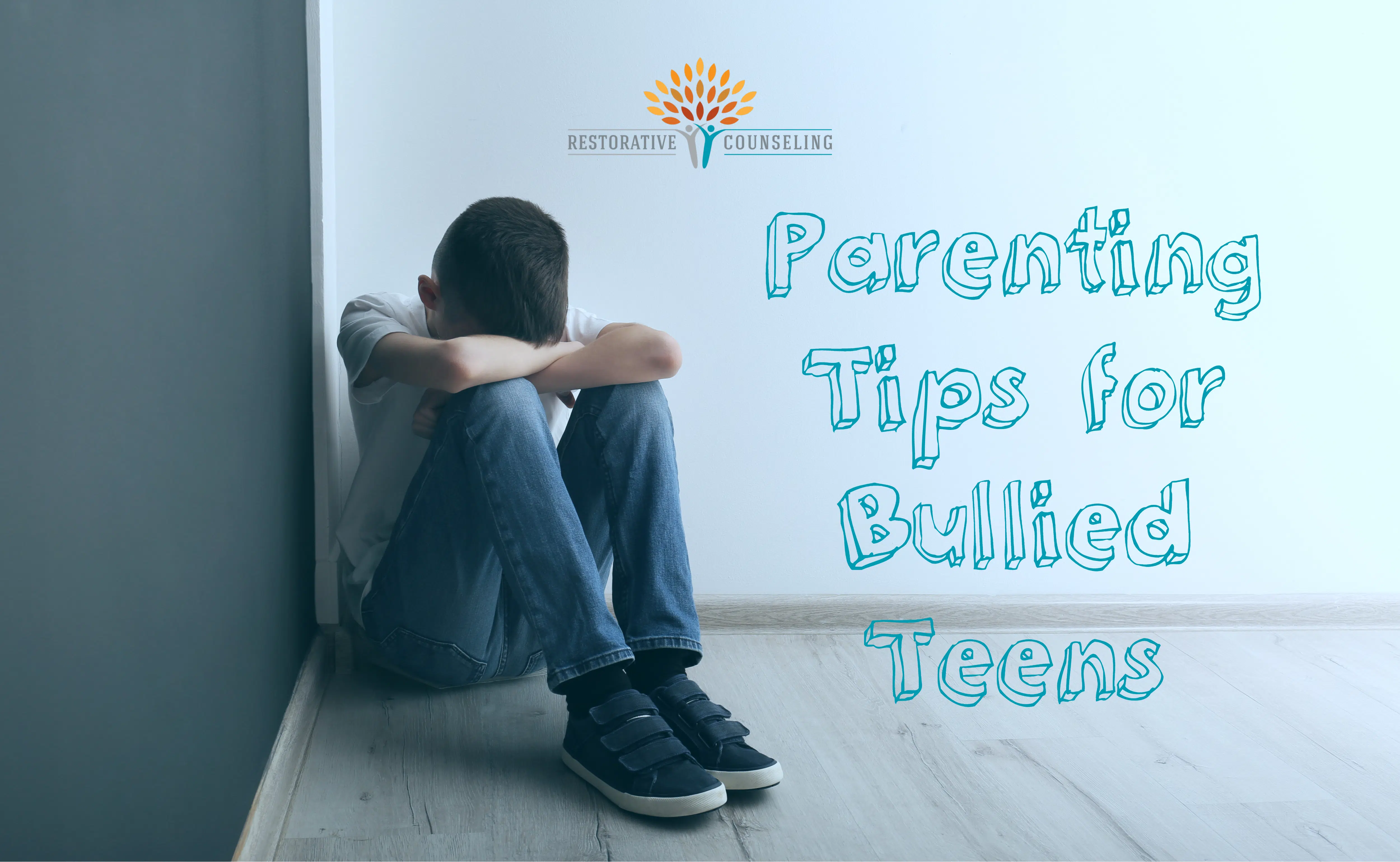Written by Jordan Meehan, LCSW
Bullying has changed dramatically with the prevalence of technology and social media in teens’ lives.
Have you ever sensed that something was just “off” one day with your teen? Take Eric and his mother for example. One day, Eric came home from band practice and sat down to start his homework like he does every day. Eric did not greet his mother like he typically would. Eric’s mother noticed how quiet he was and asked about his day. He snapped that his day was “fine” without even looking up at her. Eric’s cell phone buzzed and his shoulders slumped; he gathered his things and ran off to his bedroom, shutting the door behind him. Eric’s mom was very worried but she had no idea what to do to help her son. What was going on?
On average, about 20% of teens in 9th-12th grade were bullied at some point.*
For many teens, the events of the school day follow them home thanks to Facebook, Instagram, Snapchat, Kik, Twitter, WhatsApp, YouTube, and a multitude of other social media sites and apps. Eric’s story is one example of what many teens experience. Earlier in the day, he had found out that several students at his school were spreading a rumor about him. When his phone buzzed, he had been tagged in a post about the rumor on Facebook. As a result of his experience, Eric felt depressed, embarrassed, and— the most powerful of all teen emotions—rejected.
We’re here to offer support and resources.
Contact Us
As a parent to a bullied teen, the task of supporting your child can be especially daunting when the teen is not open to sharing with you.
Many parents feel lost about how to best help their child if the teen displays uncharacteristic behaviors or emotions. Simply recognizing the signs of a bullied teen can be difficult unless you know what to look for. Signs of bullying vary based on many factors, such as age and personality.
Here are some common tell-tale indicators that your teen may be the subject of bullying:
- withdrawing from conversations and family activities at home (being unusually quiet)
- avoiding certain places or people (not wanting to hang out with friends or go to school)
- complaining of frequent stomachaches or headaches prior to leaving for school in the morning or upon return home in the afternoon
- avoiding conversations related to school or friends
- seeming unusually down or “blue”
- more irritable than usual and reacting negatively to family members
- falling grades and/or incomplete schoolwork
- changes in eating habits (not feeling hungry or eating more food than usual)
- school is calling to report concerns (fighting at school, skipping classes, etc.)
- isolating himself from favored activities (spending more time alone in his bedroom, seems bored with typical hobbies/interests, etc.)
If you have ever noticed any of these signs, you have several options as a parent:
- Reassure your teen that you love them and care about them.
- Remind your teen that you will listen and not judge them.
- Determine if the events warrant contacting the school. For example, your teen was threatened with physical harm, or an inappropriate picture of your teen was shared with others.
- Provide your teen with the opportunity to talk to a counselor about their feelings and experiences if they are not comfortable sharing with you.
Embarrassment is an influential emotion for teenagers, and the emotion can often make teens feel afraid to share their experiences with trusted family members, for fear of judgement.
So, after recognizing signs that Eric was being bullied, his mother reminded him that she wants him to feel safe and cared for. As a result, Eric was resistant to talking with her, so she suggested that an unbiased third party, like a counselor, may be helpful. He was reluctant, but he agreed to give it a try. Working with a counselor allowed Eric to process his experiences and learn how to better cope with bullying. Eric interacted with his mother and family more, he seemed less grouchy, and he was more willing to share some of the problems he was dealing with.
Bullied teens often experience a variety of ensuing mental health challenges including depression, anxiety, and suicidal thoughts. If you are the parent of a teen that is being bullied, Contact us now to schedule an appointment with Restorative Counseling. We strive to support both you and your teen in the healing process.

Hi, I’m Jordan!
I partner with teens and adults to treat concerns related to trauma, anxiety, and relationships utilizing CBT, ACT, and EMDR approaches. Read more about me.
Follow Restorative Counseling
Sign up for our newsletter

